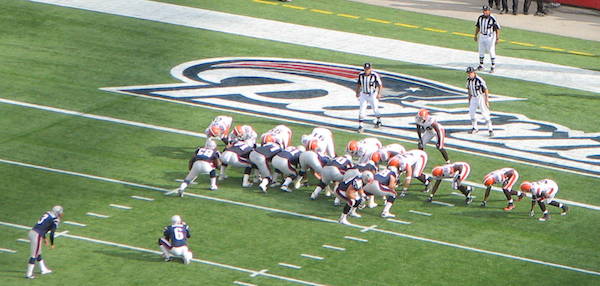Dear Sports Fan,
What is icing the kicker? Why do football coaches do it? I saw a game the other day where the coach took two time-outs right before a field goal by the opposing team. They made it anyway! What gives?
Thanks,
Terry
Dear Terry,
Close football games often come down to a last-minute or last second field goal kick. If the team attempting the kick makes it, they win. If they miss it, they lose. The defending team has very few options in this situation. Their ideal tactic would be to block the kick but unless you’ve got Jamie Collins on your team (and he gets pretty lucky,) blocking a field goal is virtually impossible. Unfortunately, there aren’t really any other options the defense has. Either the field goal kicker is going to make the kick or he’s not. Without any realistic options, many football coaches are left grasping at straws. And that’s when they ice the kicker.
Icing the kicker is when a coach takes a time-out right before the opposing team’s kicker attempts a field goal. The theory is that this will unnerve the kicker, particularly when the kick is very important, like in the scenario we set up above. The kicker, left to think about nothing but the kick at hand (or should it be at foot?) will start to think about the criticism he’ll face if he misses — will he be lambasted in the media? will he still have a job if he misses? will his teammates hate him? — and, because of that, he’ll panic and miss the kick. It doesn’t work. No, really, it doesn’t work. I promise. And really, why would it work? Professional field goal kickers already spend all game and all week and all year thinking about kicking field goals. Another 30 seconds isn’t going to matter. They know they’re always a missed kick from losing their jobs. The 32 who have made it into the NFL are the ones who thrive under those circumstances.
So, why do coaches persist in doing something that doesn’t work? It’s not because they’re stupid. I think it’s because there’s a strong human preference for action over inaction and also for delaying the inevitable. In our last second field goal scenario, taking a time-out doesn’t help the defending team, but it doesn’t hurt them either. So, perhaps the better question is, why not do it? Especially if no one thinks it’s going to win, they’re not going to criticize a coach for trying. It’s like the old joke about the scientist with a horseshoe on his door who answers a colleagues question about why he bothers hanging it there since he obviously doesn’t believe in superstition. The scientist replies, “well, it can’t hurt.” If you ice the kicker and it doesn’t work, well, we all know it doesn’t work — there’s no regrets. If you don’t ice the kicker and he makes the kick, maybe you wonder if the tactic would have worked, if only in that specific setting. Even if a coach truly doesn’t believe in icing the kicker, he probably doesn’t want to lose more than he doesn’t want to ice the kicker. For the next thirty seconds, at least, icing the kicker is a way to avoid losing.
Thanks for your question — and one last note. In the NFL, coaches aren’t allowed to take two time-outs before the same play. Maybe the coach took a time out, then a play was run, and then he took another time-out right before the kick?
Ezra Fischer

